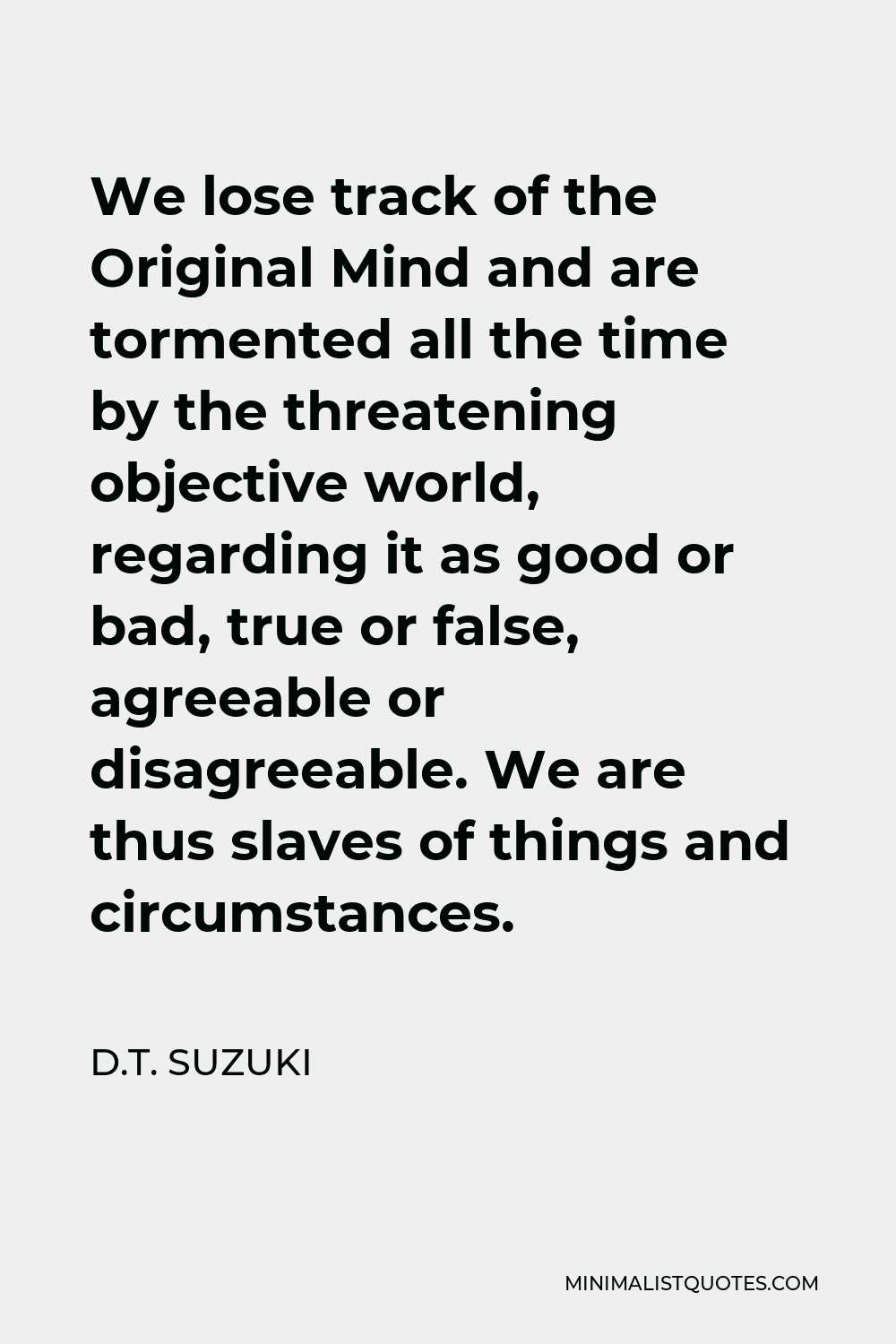Zen has no business with ideas.
D.T. SUZUKIWe lose track of the Original Mind and are tormented all the time by the threatening objective world, regarding it as good or bad, true or false, agreeable or disagreeable. We are thus slaves of things and circumstances.
More D.T. Suzuki Quotes
-






-







The truth of Zen is the truth of life, and life means to live, to move, to act, not merely to reflect.
D.T. SUZUKI -






Great works are done when one is not calculating and thinking.
D.T. SUZUKI -





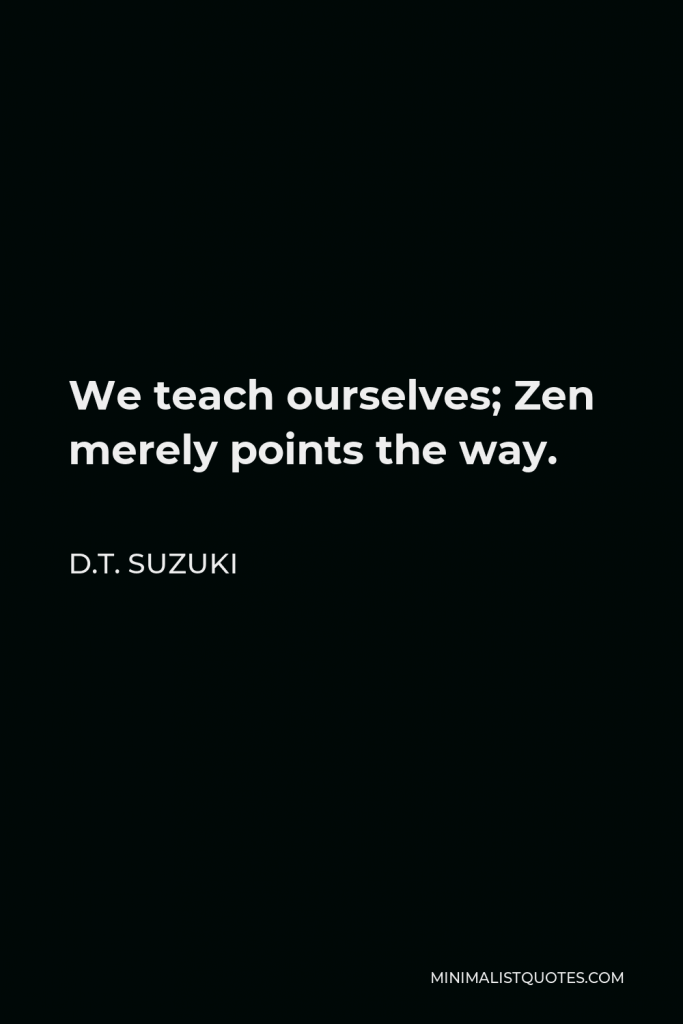

We teach ourselves; Zen merely points the way.
D.T. SUZUKI -





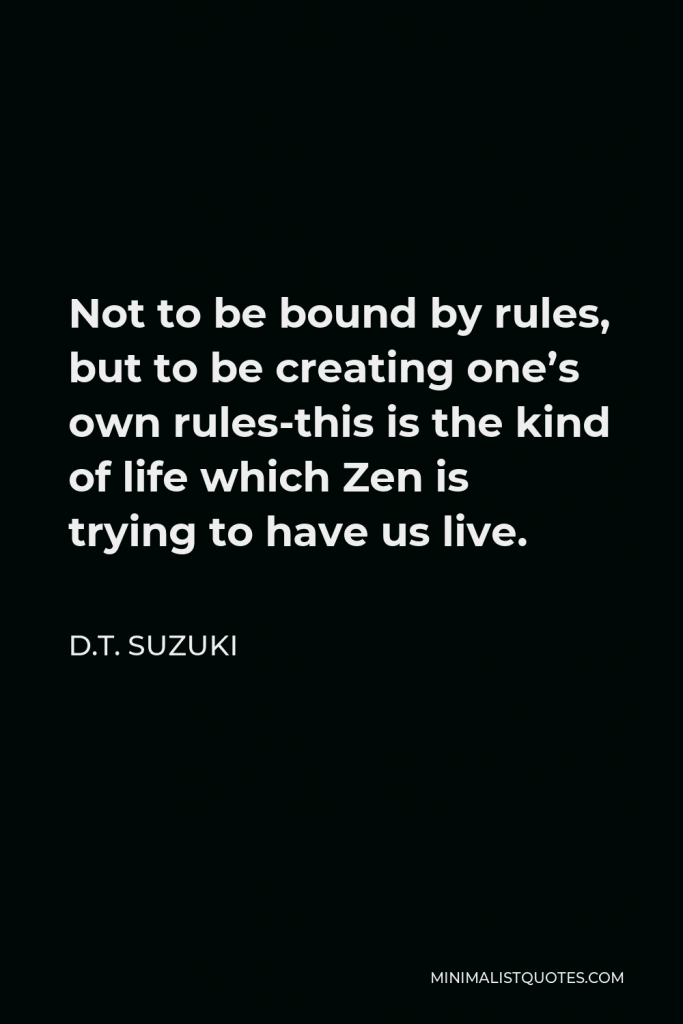

Not to be bound by rules, but to be creating one’s own rules-this is the kind of life which Zen is trying to have us live.
D.T. SUZUKI -





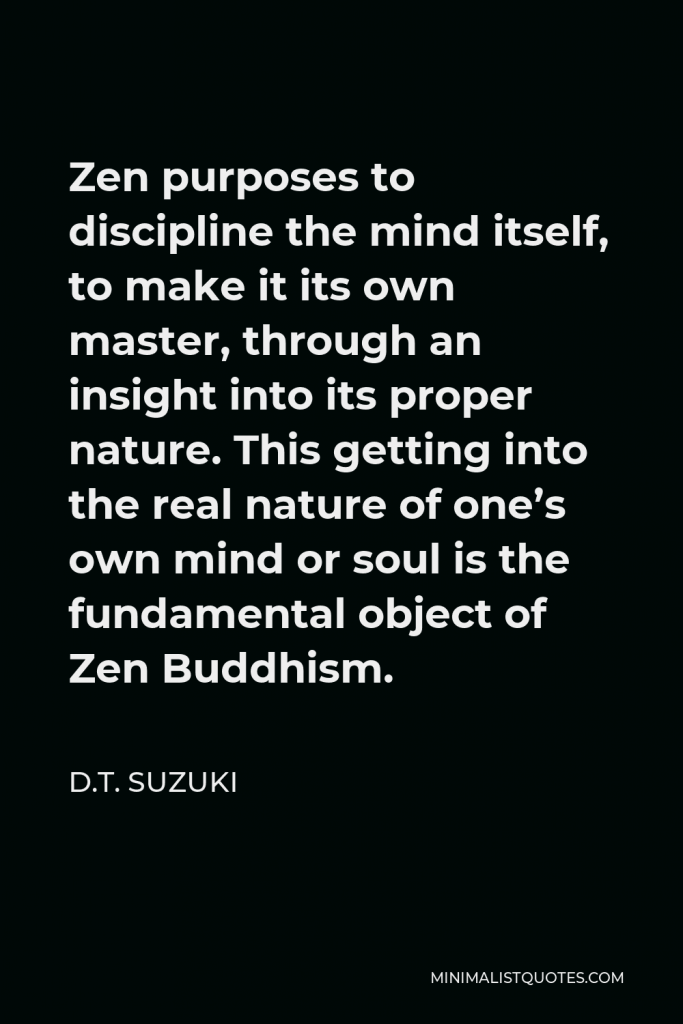

Zen purposes to discipline the mind itself, to make it its own master, through an insight into its proper nature. This getting into the real nature of one’s own mind or soul is the fundamental object of Zen Buddhism.
D.T. SUZUKI -






Zen has nothing to teach us in the way of intellectual analysis; nor has it any set doctrines which are imposed on its followers for acceptance.
D.T. SUZUKI -






Enlightenment is like everyday consciousness but two inches above the ground.
D.T. SUZUKI -







The more you suffer the deeper grows your character, and with the deepening of your character you read the more penetratingly into the secrets of life.
D.T. SUZUKI -





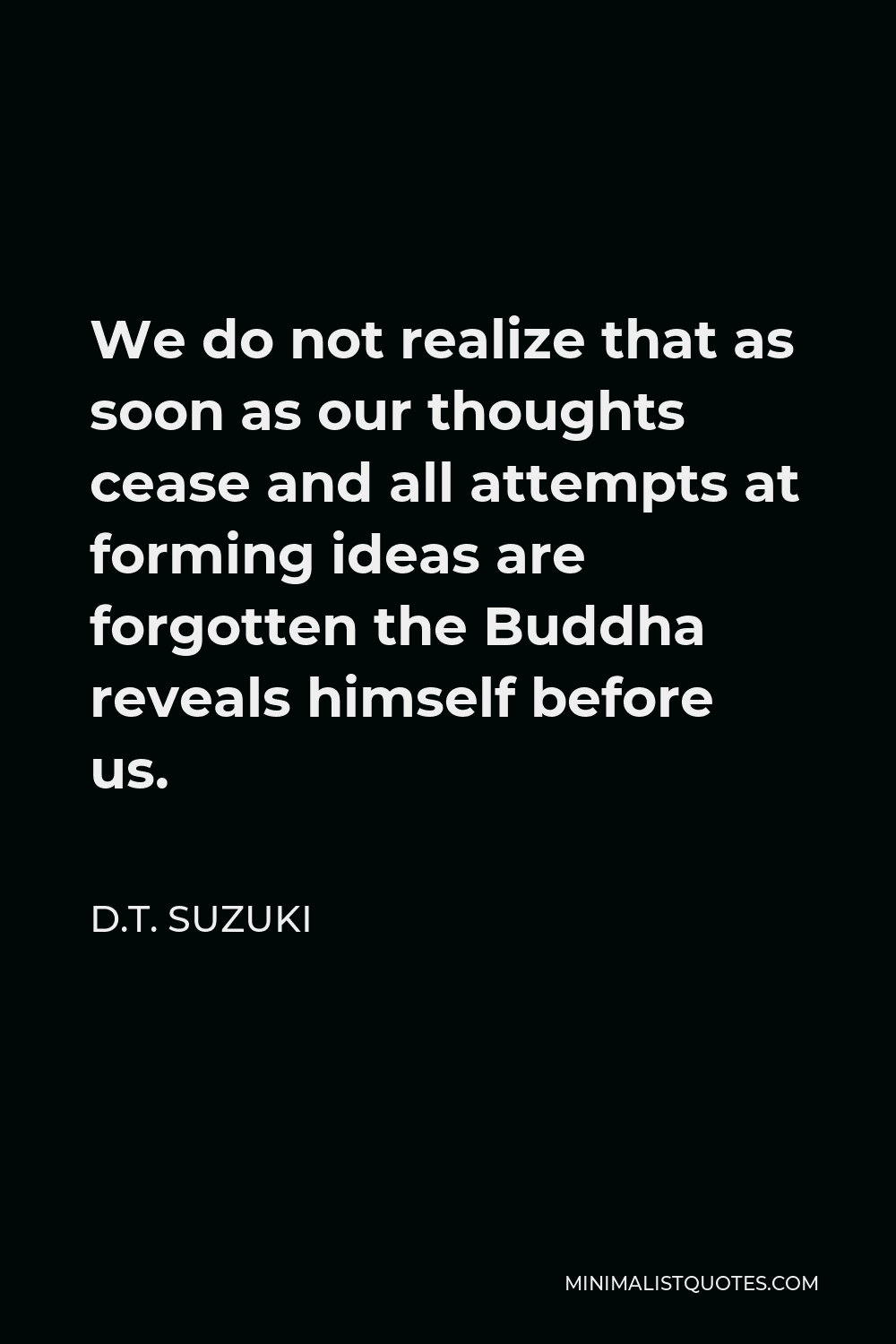
We do not realize that as soon as our thoughts cease and all attempts at forming ideas are forgotten the Buddha reveals himself before us.
D.T. SUZUKI -






The right art is purposeless, aimless! The more obstinately you try to learn how to shoot the arrow for the sake of hitting the goal, the less you will succeed in the one and the further the other will recede.
D.T. SUZUKI -







All great artists, all great religious leaders, and all great social reformers have come out of the intensest struggles which they fought bravely, quite frequently in tears and with bleeding hearts
D.T. SUZUKI -







A simple fishing boat in the midst of the rippling waters is enough to awaken in the mind of the beholder a sense of vastness of the sea and at the same time of peace and contentment – the Zen sense oof the alone.
D.T. SUZUKI -






If you have attained something, this is the surest proof that you have gone astray. Therefore, not to have is to have, silence is thunder, ignorance is enlightenment.
D.T. SUZUKI -





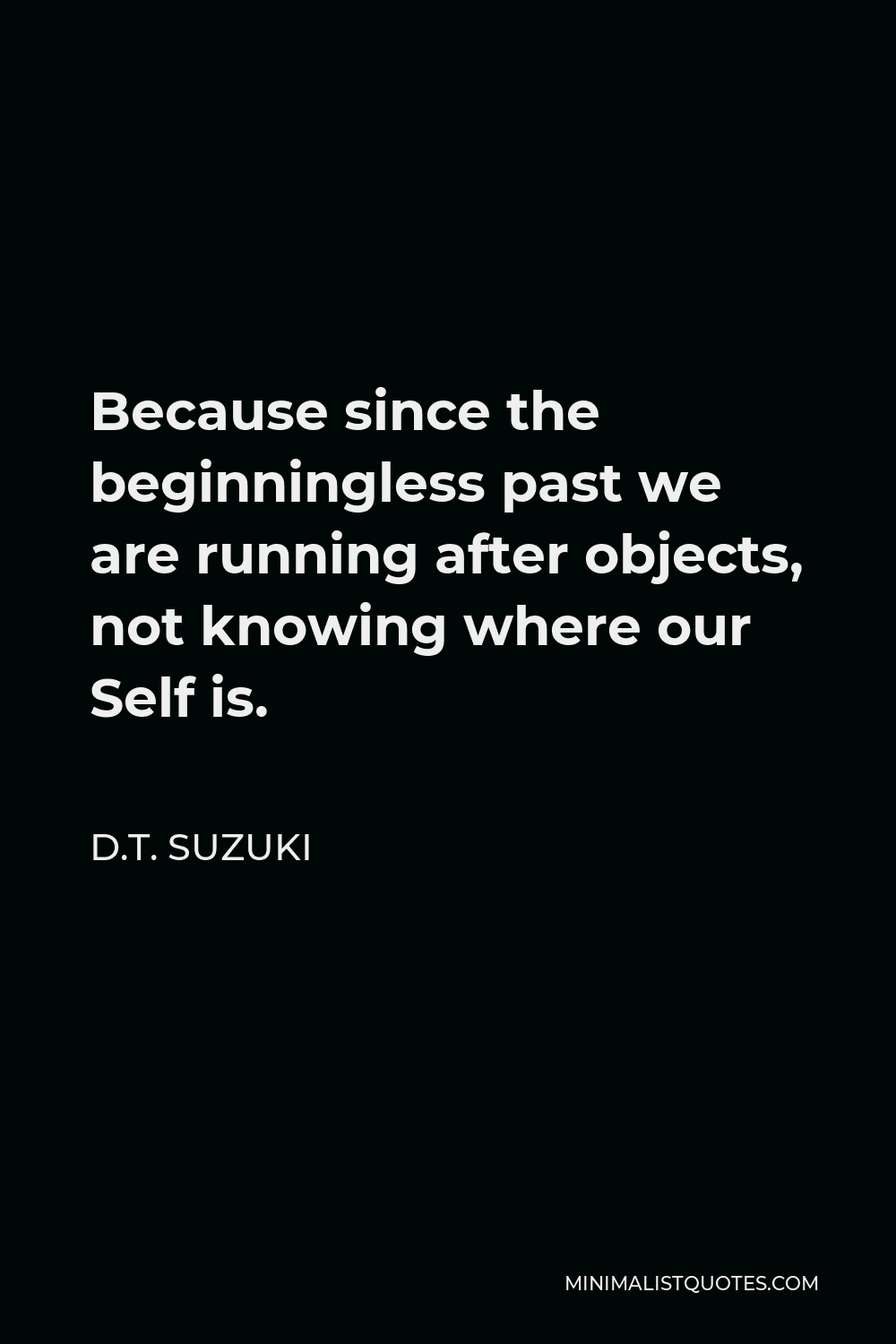
Because since the beginningless past we are running after objects, not knowing where our Self is.
D.T. SUZUKI -






Absolute faith is placed in a man’s own inner being. For whatever authority there is in Zen, all comes from within.
D.T. SUZUKI





